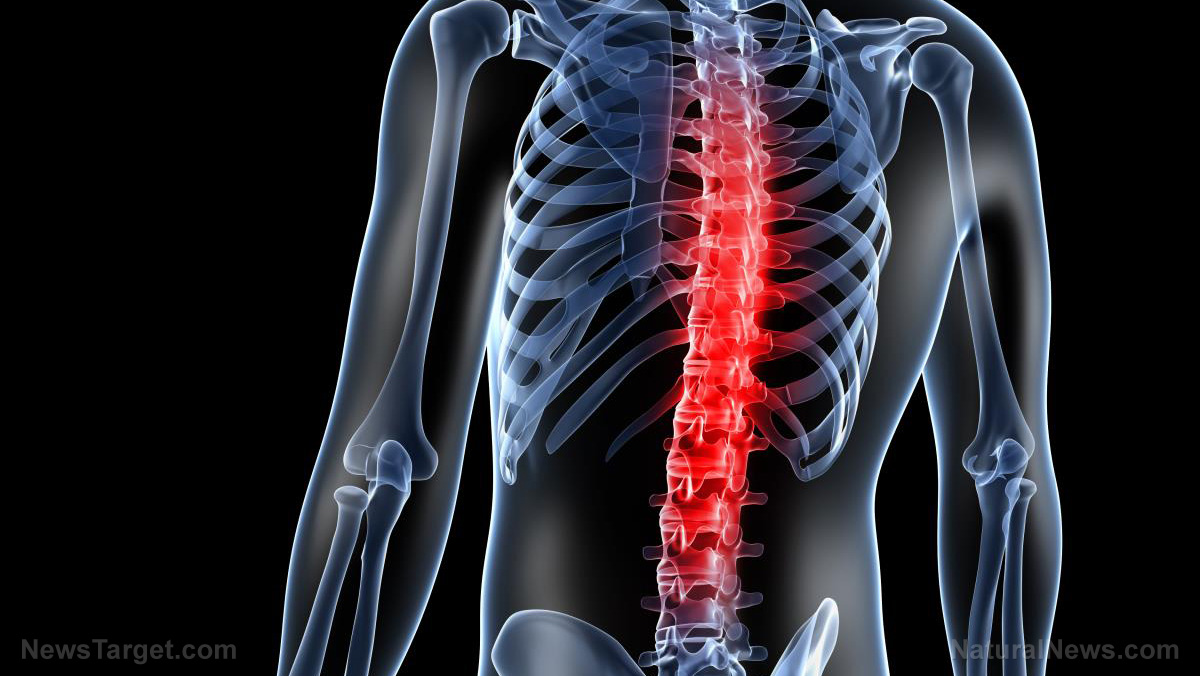Yerba santa, a medicinal herb native to California, reduces swelling in the brain and could successfully treat Alzheimer’s
05/27/2019 / By Cassie B.

Alzheimer’s disease is so frightening because we know so little about it and have yet to find an effective cure. This makes it hard to prevent – although herbs like turmeric and the antioxidants in blueberries show promise – and even harder to accept when you or a loved one are diagnosed with it. Now, some new hope is emerging in the form of a medicinal herb found in California.
The herb, yerba santa, is known as “holy herb” in Spanish, and its effects could indeed prove to be divine as scientists are learning about its ability to reduce swelling in the brain and potentially treat Alzheimer’s disease. It has long been used medicinally by native Californian tribes, who brewed a tea using its leaves to address headaches, fevers, and respiratory problems; they also use it as a poultice for sore muscles, wounds and rheumatism.
Researchers from the Salk Institute in La Jolla, California, recently revealed the strong neuroprotective and anti-inflammatory properties of the plant in a study that was published in the Redox Biology journal.
They looked into the plant in hopes for finding ways to counter the effects of aging on the brain as Alzheimer’s disease has become the top cause of death in the U.S. They used a screening technique taken from drug discovery to look at 400 different plant extracts known to have pharmacological properties.
In their study, a molecule known as sterubin, which is the active component of yerba santa, was tested on nerve cells in mice, along with other plant extracts. The researchers discovered that sterubin has a strong anti-inflammatory effect on the brain cells known as microglia, which are known to play a key role in the development of Alzheimer’s disease.
On top of that, sterubin also removes iron effectively, which is useful because the mineral can contribute to the damage of nerve cells in those with neurodegenerative diseases and caused by the aging process. The compound was found to be effective against several cell death inducers in nerve cells.
Researchers plan to test sterubin using animal models of Alzheimer’s disease to determine efficacy and toxicity levels. This could pave the way for human testing and an eventual treatment for Alzheimer’s.
Senior Scientist Dr. Pamela Maher said: “Not only did sterubin turn out to be much more active than the other flavonoids in Yerba santa in our assays, it appears as good as, if not better than, other flavonoids we have studied.”
Preventing Alzheimer’s naturally
Yerba santa could prove to be one of the most exciting natural tools yet in the fight against Alzheimer’s. While scientists continue their exploration into its potential, there are a few natural ways you can go about preserving your cognitive abilities.
A healthy diet can make a big difference, and it’s relatively easy to implement. The Mediterranean diet has shown the ability to reduce the risk of Alzheimer’s and cognitive impairment in general, so be sure to consume plenty of vegetables, olive oils, fish and beans while limiting processed foods. Make sure you eat a lot of omega 3s and organic produce, and skip the sugar and trans fats.
Physical exercise is also important, with some studies showing it can reduce your risk of the disease by as much as 50 percent and slow further deterioration once cognitive problems have already started to set in. It does this by stimulating your brain’s ability to maintain its old connections and build new ones. Around 150 minutes of moderate exercise per week should be your goal; combine cardio and strength training for maximum benefits.
As scientists continue to unlock the potential of herbs like yerba santa, it’s possible that Alzheimer’s might soon become a far less frightening prospect than it is today.
Sources for this article include:
Submit a correction >>
Tagged Under:
Alzheimer's cures, Alzheimer's disease, brain health, brain nutrients, congitive decline, herbal medicine, Herbs, medicinal herbs, natural cures, natural medicine, prevent Alzheimer's, prevention, remedies, yerba santa
This article may contain statements that reflect the opinion of the author
RECENT NEWS & ARTICLES
AntiAgingScience.News is a fact-based public education website published by Anti Aging Science News Features, LLC.
All content copyright © 2018 by Anti Aging Science News Features, LLC.
Contact Us with Tips or Corrections
All trademarks, registered trademarks and servicemarks mentioned on this site are the property of their respective owners.





















